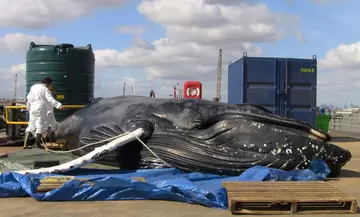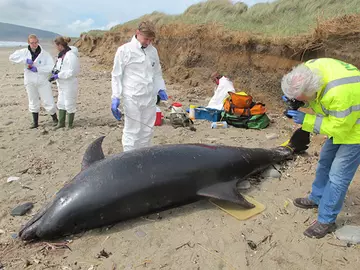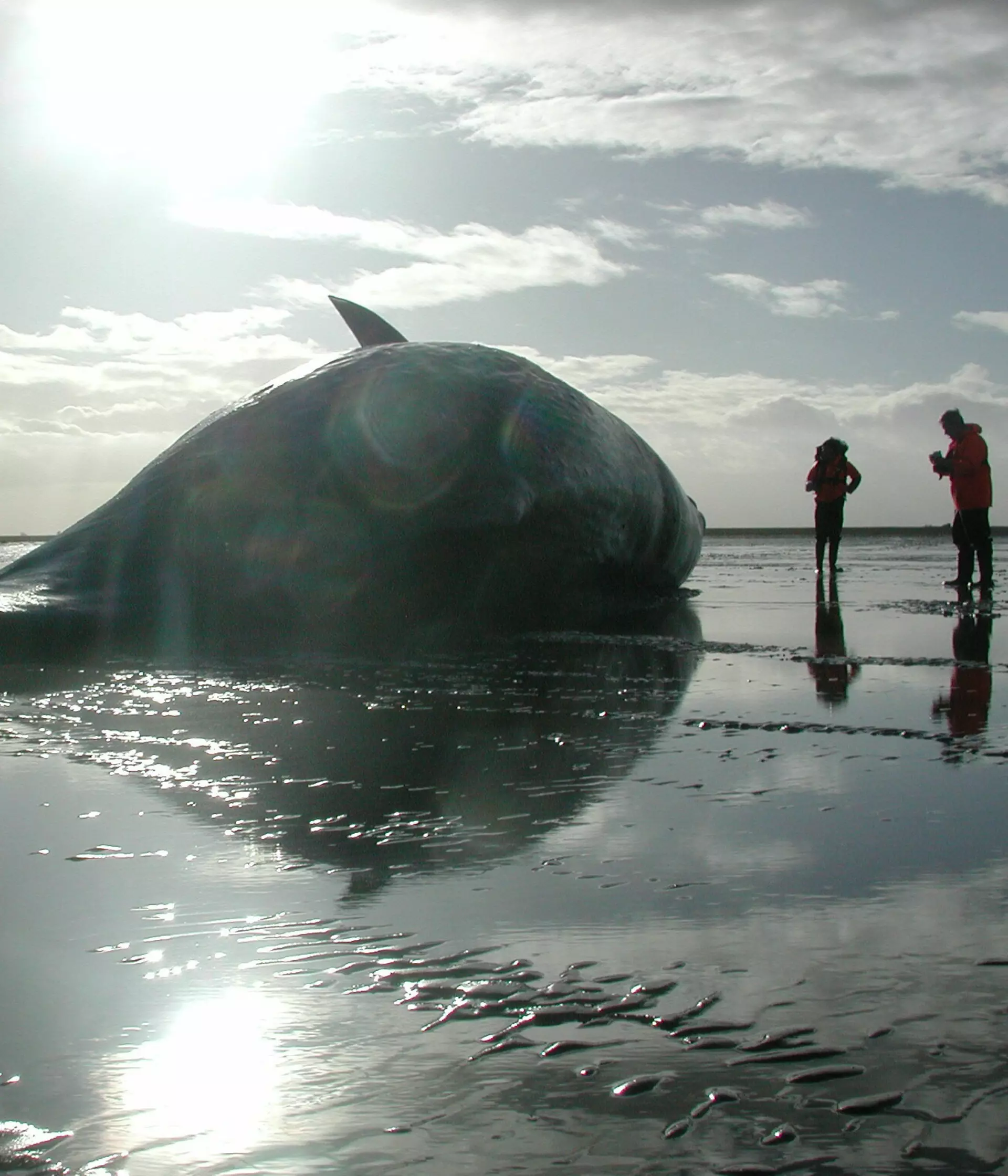
Mr. Rob Deaville
CSIP Project Manager
Cetaceans (whales, dolphins and porpoises) have regularly stranded around the UK for centuries.
The Cetacean Strandings Investigation Programme (CSIP) coordinates the investigation of all cetaceans, marine turtles and basking sharks that strand around the English and Welsh coastline.
For over thirty years we've collected vital data on over 17,850 stranded cetaceans that have been recorded across England and Wales and around 4,500 necropsies have been carried out, producing one of the world’s largest research datasets on strandings and causes of mortality. Our scientific research is crucial to empower evidence-based conservation action.
Cetacean scientific research
The underlying causes of stranding events are not always clear. In particular, the role that human activity may play in directly or indirectly causing strandings has often been called into question.

Post-mortem examination of stranded animals carried out by the CSIP provides unique insights into:
- Causes of death
- Diseases
- Environmental contaminant levels
- Reproductive patterns
- Diet
- Other aspects of the general health of cetacean populations in UK waters.

This data would be largely inaccessible through other methods and provides an important baseline to help detect future outbreaks of disease, unusual mortality events or responses to environmental change, such as climate change.
Our team developed and manages an online database, bringing together information on both strandings and post-mortem data, which is accessible to the wider scientific and conservation community, accessible via the NBN gateway.
Our team also maintains a national cetacean tissue archive, with over 80,000 samples held at ZSL alone, providing an internationally important resource for collaborative scientific research.
Advancing understanding of UK strandings
By-catch
In 1994 the CSIP led the first ever study providing evidence of accidental entrapment in commercial fisheries (by-catch) as the cause of mass mortality of common dolphins (Delphinus delphis) in UK (and European) waters.
Following this study, the UK government funded additional research into the impact of by-catch and measures were developed to reduce unsustainable cetacean by-catch rates in specific European fisheries.
Naval sonar and decompression sickness
In 2002, 14 beaked whales mass stranded in the Canary Islands. Post-mortem examination of stranded whales led by the University of Las Palmas (ULP), Canary Islands and CSIP scientists revealed that sonar activity from an international naval exercise was the most probable cause of the mass stranding event and could be causing the whales to change their diving behaviour.
The ULP-CSIP team found that these deep-diving beaked whales could suffer a condition very similar to decompression sickness, or ‘the bends’, in human divers. The beaked whales may have uncharacteristically changed their diving habits, leading to excessive bubble formation in body tissues.
The Spanish government banned naval activity around the Canaries in 2004 and there have been no mass stranding events since the ban.
The UK government subsequently set up an Underwater Sound Forum, with CSIP scientists forming an integral part, to discuss and improve the environmental mitigation of activity by the Royal Navy and the oil and gas industry.
Brominated flame retardants
CSIP-CEFAS collaborative research found accumulating levels of new chemical pollutants (brominated flame retardants) in the blubber of UK-stranded harbour porpoises in the late 1990s. This new data contributed directly to the EU-wide ban of these chemicals in 2004. Follow up CSIP-CEFAS studies, have shown a decline in concentrations of the chemical in porpoise tissue thus proving the ban to be highly effective.
PCBs
CSIP-CEFAS is leading research into the impacts of polychlorinated biphenyls (PCBs) on cetaceans. These industrial chemicals were widely used in coolants but were banned in 1981 in the UK. CSIP-CEFAS research shows that relatively high concentrations of PCBs have stabilised in UK-stranded harbour porpoises, partly due to their environmental persistence.
Our research into PCBs continues and we are pushing for urgent scientific, policy and management steps to try to reduce their concentrations and associated impacts.
The ZSL's Cetacean Strandings Investigation Programme (CSIP) is a collaborative programme that has been running since 1990 and is funded by Defra and the Devolved governments of Scotland and Wales.
Partners include:
- Scottish Rural University College (Inverness)
- Natural History Museum
- Marine Environmental Monitoring
- Cornwall Wildlife Trust Marine Strandings Network
- Centre for Environment, Fisheries and Aquaculture Science
